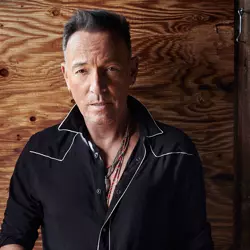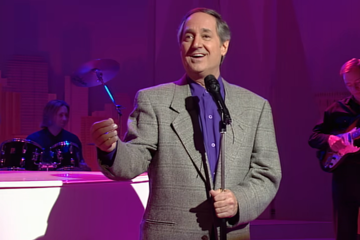 Bruce Springsteen
Bruce SpringsteenFollowing backlash surrounding its "dynamic pricing" on Bruce Springsteen’s US tour, Ticketmaster has defended the controversial system, stating that it’s about “capturing more value for the artist at the initial onsale”.
The pricing structure made headlines earlier this month when a number of tickets to The Boss’ tour were listed for up to $5,000US, and while fans were outraged, the ticketing giant has clarified that “overall 18% of Springsteen’s US tour tickets sold for under $99, and only 1% of tickets sold for more than $1,000US”.
“Promoters and artist representatives set pricing strategy and price range parameters on all tickets, including dynamic and fixed price points,” a Ticketmaster spokesperson told The Music.
“Ticketmaster has created analytical tools that use historical and real-time data to help quantify supply and demand to determine prices. The promoters and artist representatives then determine the specific pricing for their shows.
Don't miss a beat with our FREE daily newsletter
“The biggest factor that drives pricing is supply and demand. When there are far more people who want to attend an event than there are tickets available, prices go up. If prices were under market value at the onsale, they frequently resell on the secondary market at higher price points.
“Dynamic pricing is about capturing more value for the artist at the initial onsale, vs that value going to people reselling tickets on the secondary market. Similar to airlines and hotels - prices adjust up or down based on demand.”
Additionally, Ticketmaster’s dynamically priced tickets are labelled “In Demand Tickets”, so as not to confuse or mislead patrons.
Yesterday, Oztix co-founder Brian “Smash” Chladil chimed in on the debate, stating, “I fail to see any benefit to consumers at all.”
Chladil told The Music that artist managers and agents negotiate with the promoter to set ticket prices to cover the tour costs, marketing and profit for all involved and those figures are “generally set as high as they think the market will bear”.
“So one has to ask, why go higher just because the demand is higher? Chladil said.
“The moral question is should promoters and bands profiteer from un-expected demand? If they expected the demand, they would have increased the prices anyway.
“Oztix doesn’t engage in the practice, nor would we. It’s called being ethical. Maybe these large companies should try it one day, it feels good.”
Speaking with The New York Times after Springsteen's tour made headlines, manager Jon Landau noted: “In pricing tickets for this tour, we looked carefully at what our peers have been doing. We chose prices that are lower than some and on par with others.
“Regardless of the commentary about a modest number of tickets costing $1,000 or more, our true average ticket price has been in the mid-$200 range.
“I believe that in today’s environment, that is a fair price to see someone universally regarded as among the very greatest artists of his generation.”
Other ticketing outlets also utilise some form of dynamic ticket pricing, with Ticketek offering 'Ultimate Tickets' to certain events, while websites such as Lasttix. offer cheaper tickets when demand is lower.















